Mediterranean Coast Day is celebrated on September 25th.
You can travel through the time of a bay - a micro-Mediterranean swimming pool that connects Split, Solin, Kaštela and Trogir - where you can read about the past and perceive the future, through the “Kaštel Story" project organized by the Mediterranean Coast Management Center PAP/RAC), the Kaštela Museum of Art, Department of Urbanism of the Split Faculty of Civil Engineering, Architecture and Geodesy, Gymnasium Vladimir Nazor and the RERA Agency of Split-Dalmatia County, in the framework of the EU-funded Interreg Mediterranean project Co-Evolve.
The story opened on Saturday, September 22, at Strossmayer Park, where the organizers took us on a journey to the Kaštela Bay and displayed the Kaštela coast, space and people from 1900 to 2100. The project was created as part of the Mediterranean Coast Day celebration, and its aim is to invite us to reflect on the bay and coast that connects us through the records of the past, the recordings of the present and the vision of students.
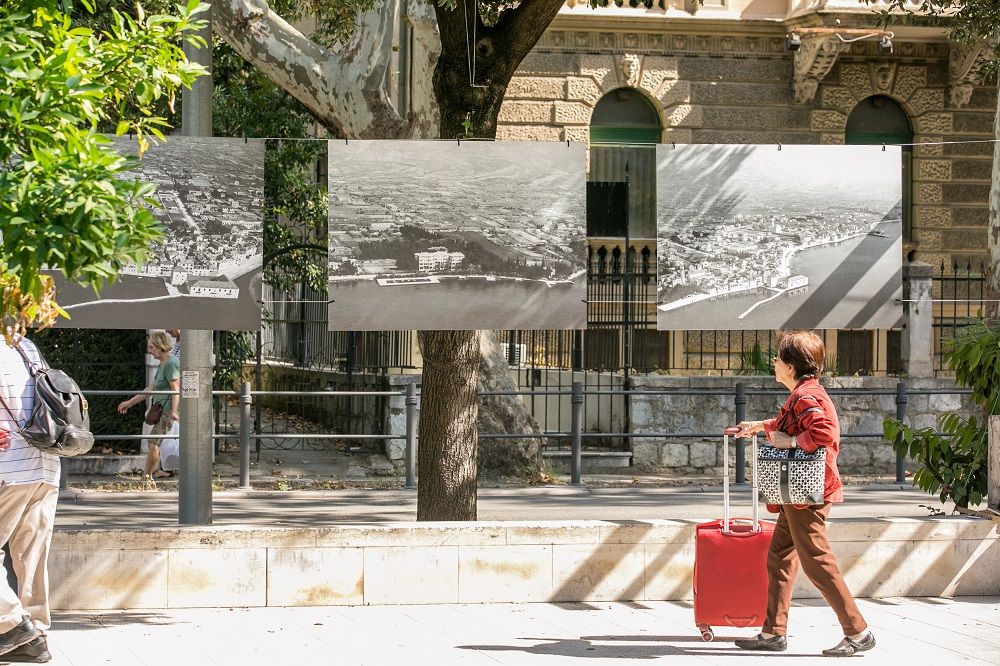
"Kaštela Bay is a small illustration of the Mediterranean coastline. Industrialization, the excessive urbanization of the coast, wild buildings and all the environmental problems that followed had to do with the many efforts to find solutions and the state of the Kaštela Bay as it is today. Kaštela has been carrying the consequences of climate change for some time, and in the future, these challenges will grow,” emphasized the Mediterranean Coast Management Center.
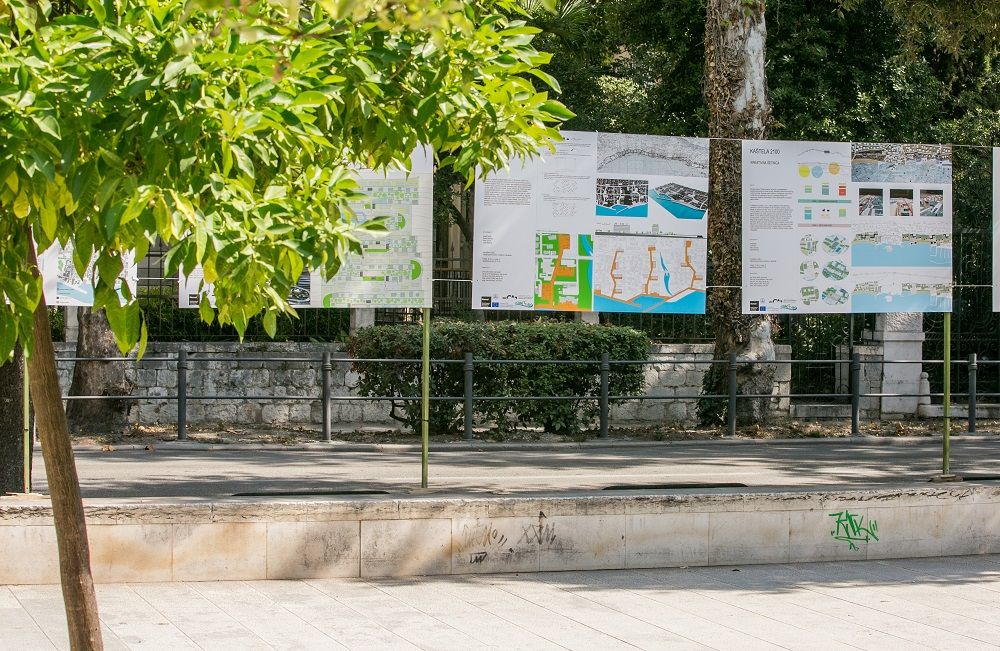
As part of "Kaštela Stories", the exhibition "Cultural Landscapes of Kaštela 1960-2016" was opened, consisting of large-format photographs taken from the air during the 1960s, and video and audio recordings of today's Kaštela with the narrative of dr.sc. Ivo Babić, Ph.D. Tonči Burić, prof. Ivna Bućan, Mr. Milivoj Novak and Mr. Ante Vuletin.
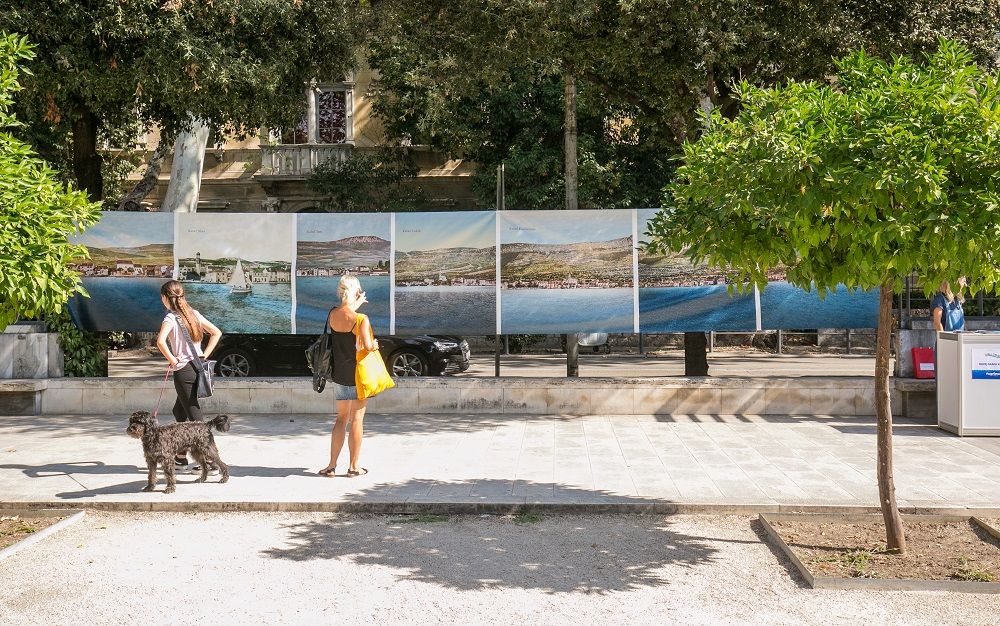
"Our goal is to reconstruct at least a part of the landscape we still have in memory, to recall the reasons for the great changes, the spread and the growth of the city, and point out to the local community that museums are actively involved in the protection of heritage in the environment, and in this case the protection of cultural landscapes,” the exhibition author, museum advisor Sanja Acalija said.
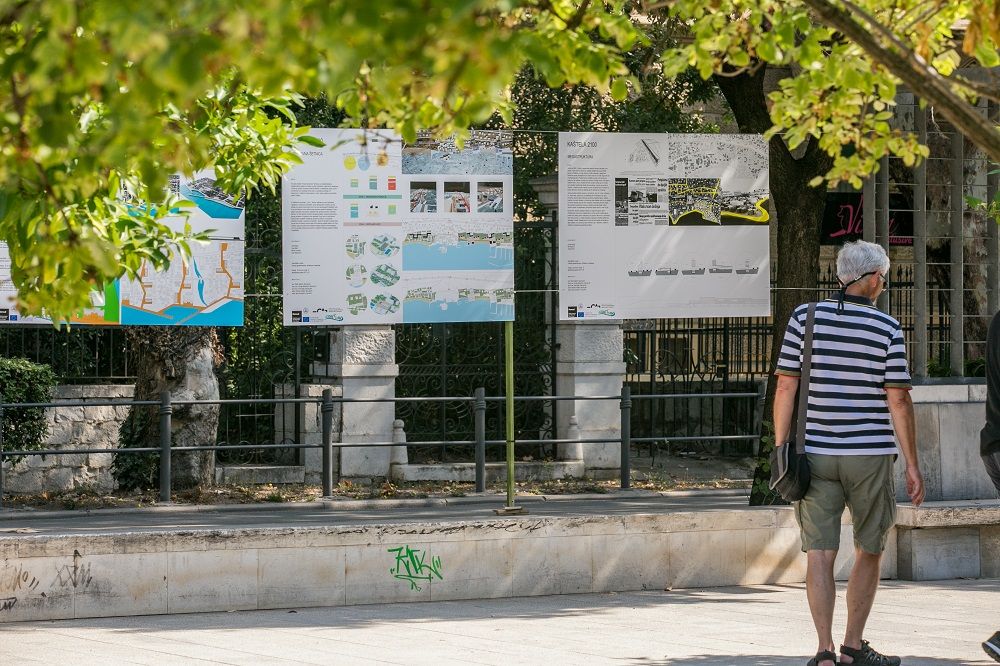
A contribution to the Kaštela story was also given by the students of the Department of Urban Planning of the Split Faculty of Civil Engineering, Architecture and Geodesy, who presented their works on the topic "Kaštela 2100" during the academic year 2017/2018. The students exhibited posters, designs, collections and other thematic content. Gymnasium Vladimir Nazor also broadcasted news from the future.
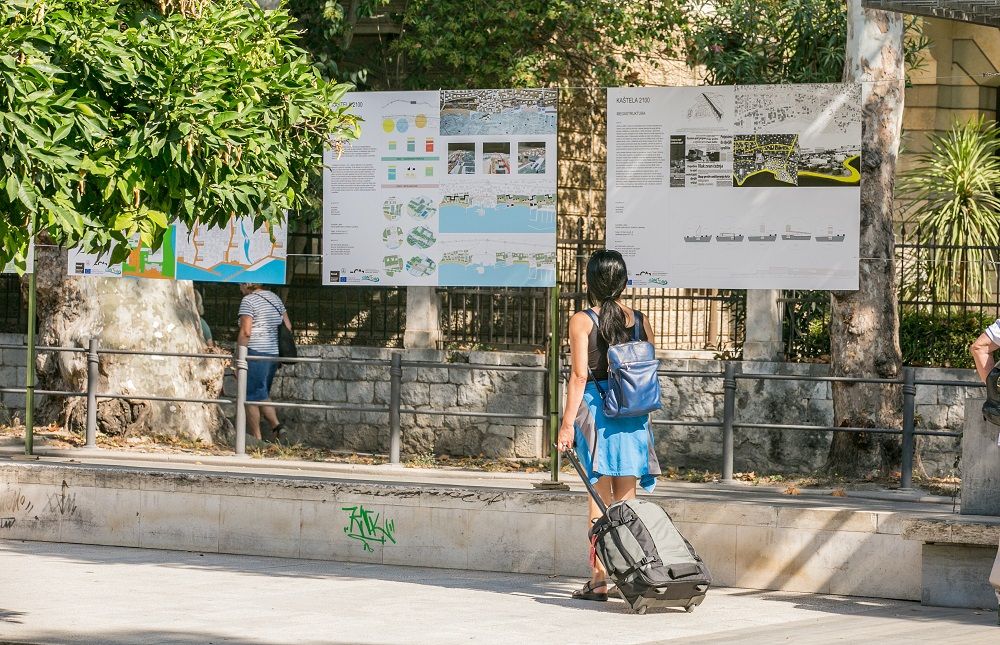
"We are witnessing even more frequent traffic jams and outdated and unfinished infrastructure that does not accompany tourism and economic development. We know that traffic is a prerequisite and a very important factor in development, and that's why this idea might offer interesting and future solutions,” said the students who participated in the project.
Visitors will be able to see the "Kaštela Story" exhibition on Sunday, September 23 through 19.30 and on Tuesday, September 25, from 14.00 to 17.00.


